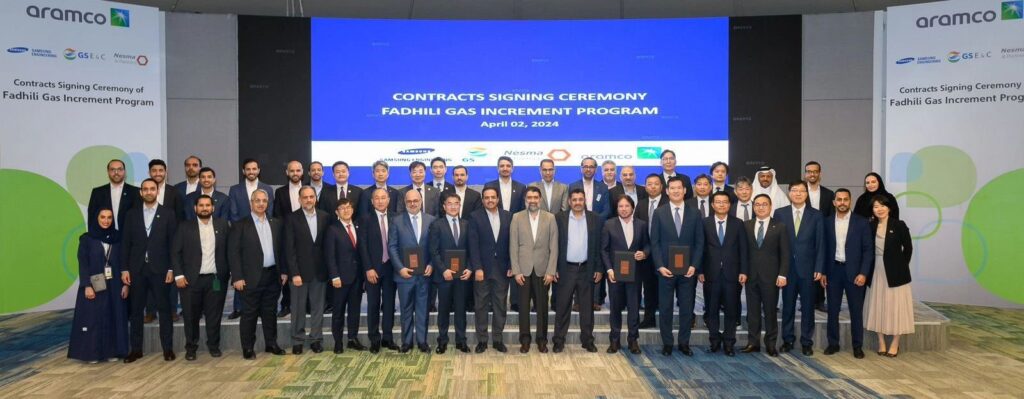Saudi Aramco Awards $7.7 Billion Contracts to Add 1.5 Billion Standard Cubic Feet Per Day of Raw Gas to Fadhili Gas Plant
✔️ The company awards contracts for engineering, procurement, and construction to develop an expansion of the Fadhili Gas Plant
✔️ The project adds up to 1.5 billion standard cubic feet per day to the capacity of the Fadhili Gas Plant
🔸️#SaudiAramco, a global leader in the energy and chemicals sectors, today awarded engineering, procurement, and construction contracts valued at $7.7 billion US dollars for a significantly expanding Fadhili Gas Plant in the Eastern Region. The project is expected to increase the gas processing capacity of the plant from 2.5 to approximately 4 billion standard cubic feet per day.
🔸️The additional processing capacity of 1.5 billion standard cubic feet per day is anticipated to contribute to the company’s strategy to increase gas production by more than 60% by 2030 compared to 2021 levels. The expansion of the Fadhili Gas Plant is also expected to add 2,300 metric tons per day of sulfur production and is projected to be completed by November 2027.

🔸️On this occasion, Wael Al-Jaafari, Executive Vice President for Technical Services at Saudi Aramco, said: “The awarding of these contracts reflects Saudi Aramco’s goal to increase Natural Gas supplies, support efforts to reduce greenhouse gas emissions and provide more crude oil for refining and export to add value. By collaborating with the leading global companies that have been signed, we are moving forward in achieving the company’s strategic goal of increasing gas production. This expansion also supports our ambitions to develop a Low-carbon hydrogen business while considering the gas production-associated liquids an important raw material in the petrochemical industry.”
🔸️Saudi Aramco has awarded the engineering, supply, and construction contracts for the project to increase production capacity at the Fadhili Gas Plant to Samsung Engineering, GS Engineering & Construction, and Nesma & Partners.”

